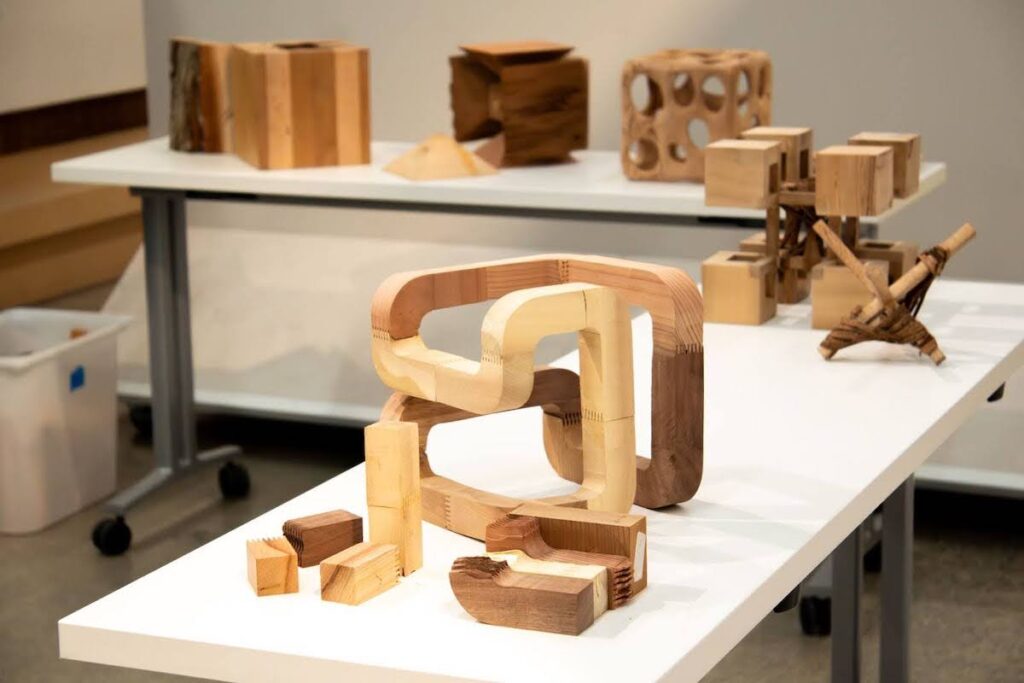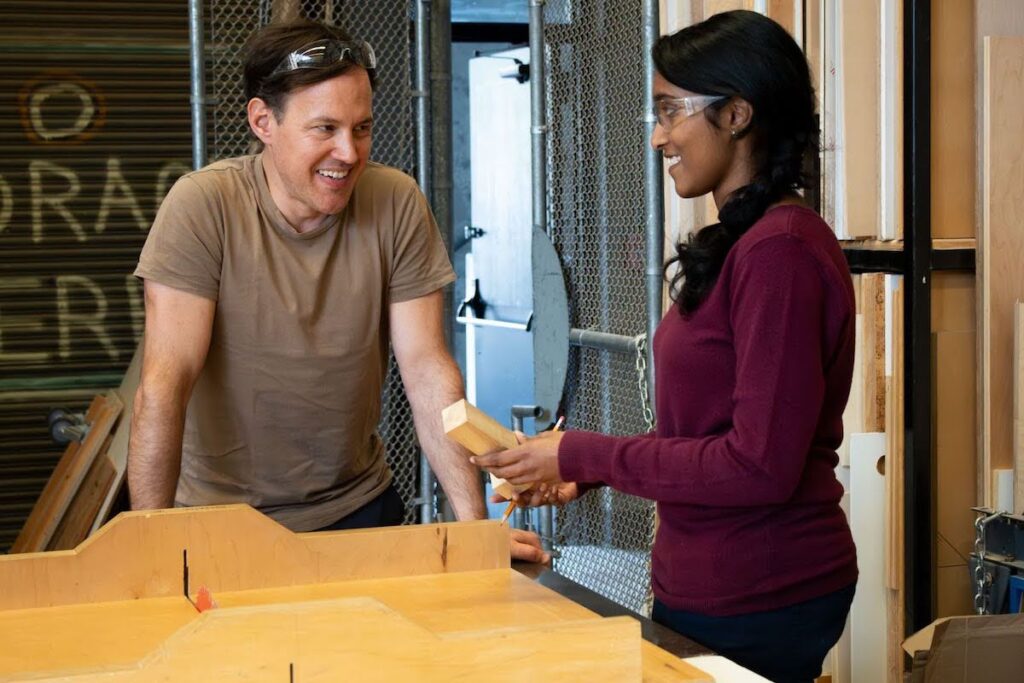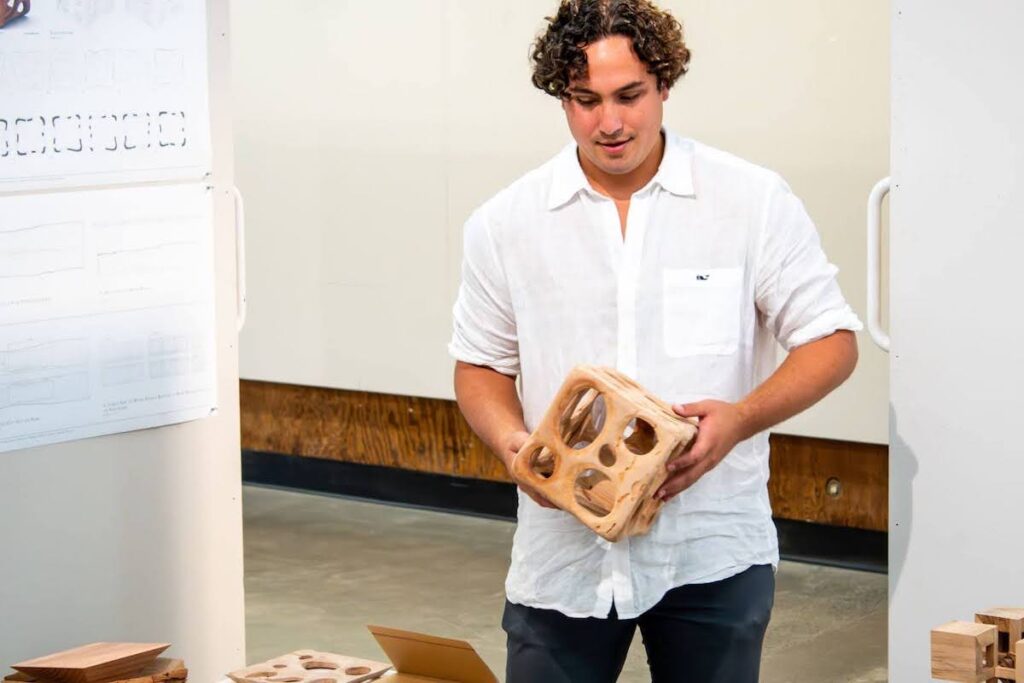Timber Education Prize awarded to MAAD curriculum
The Softwood Lumber Board and the Association of Collegiate Schools of Architecture have named a new studio for Berkeley’s Master of Advanced Architecture Design program as a winner of its 2024 Timber Education Prize.

Highlighting the role timber can play in reducing the embodied energy content and emissions of buildings, the prize aims to advance deeper investigations into wood design at architecture schools.
The jury recognized Assistant Professor Philip Tidwell’s proposal, Forest – Fiber – Frame, as an effective and innovative curriculum that creates a stimulating, evidence-based environment for learning about structural timber systems, particularly praising its focus on California forests.
MAAD is a post-professional program centered around an experimental, research-driven studio. Extending over two semesters, the studio often focuses on a particular material; previous years have investigated soil, with Professor Ron Rael, and lignin, with Professor Maria Paz Gutierrez.

Tidwell, who is serving as director of MAAD through 2025–2026, joined the Department of Architecture faculty last spring. He has deep experience with wood design and construction as an architect, educator, and researcher. For more than a decade, he served as studio coordinator for the Wood Program at Aalto University in Helsinki. He is co-author and co-curator of New Standards, an exhibition and book that examines the industrialization of the wood industry in Finland during and after the Second World War.
Forest – Fiber – Frame takes a comprehensive view of wood construction as a material practice that extends from silviculture and forest management to manufacturing and waste. With California as the point of departure, students are working to understand the changing dynamics of wood in the American West from growth and harvest to processing and construction. They are exploring how a shift from “stick” building to “mass” timber assembly might change architectural design in the coming decades.

MAAD students started the semester researching California forests and learning about tree species, as well as processes of logging, milling and peeling. Over the course of the year, they will develop a collective body of research and knowledge. They will design, develop, and test novel techniques and materials by fabricating physical studies in CED’s wood shop.
At the end of their MAAD experience, students will have constructed a full-size prototype that illustrates the potential of one of the formal or structural methods they developed throughout the course.
Interested in MAAD? Applications for the 2025–2026 academic year are due January 3. Learn More>